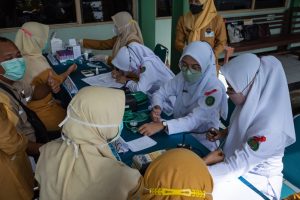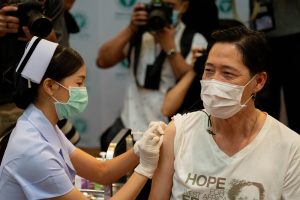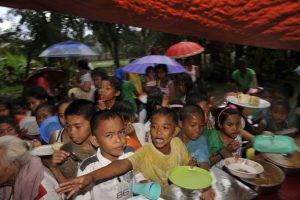Accessible reproductive services are available to disadvantaged people in the Philippines amid low contraception usage rates.
One such example is the Likhaan Center for Women’s Health. It is a non-government organisation co-founded and managed by Dr. Junice Demetrio-Melgar. They serve both men and women, addressing their reproductive health needs.
Stigma in the Philippines
The Philippines is considered one of Asia’s most Christian countries. With the Christian values that the country upholds, there is a stigma against using contraceptives.
Contraceptives are mainly used to prevent unwanted pregnancies. Even though the Philippines has a Reproductive Health law that provides universal access to contraception procedures, fertility control, sexual education, and maternal care, a stigma among its citizens remains.
The stigma presents contraceptives as a promotion of pre-marital sex (PMS) and condoning sleeping with multiple partners, which are unlawful based on the Holy Scripture. In addition, improper education about the purpose of contraceptives for young people also affects how they view contraceptives.
According to a survey by the Department of Sciences and Technology (DOST) in 2013, pre-marital sex increased with a 9% increase since 2002, resulting in 32% of young adults aged 15-24 years old. Among the 32%, only 22% used protective contraception during their first PMS. This resulted in the doubling number of pregnant teenagers aged 15-19.
What are Reproductive Services?
Reproductive services encompass everything about the healthcare for the reproductive system. This includes consultation, surgeries, and products such as abortion, birth control, vasectomy, freezing of ovaries, in-vitro fertilisation, etc.
These reproductive services in the Philippines are costly, prohibiting the disadvantaged population from acquiring the services. This became the central focus of Dr Junice for the organisation, Likhaan.
Likhaan Center for Women’s Health
Likhaan Center for Women’s Health focuses on the health and equality of reproductive services to both genders, especially those in marginalised communities. They work together with health workers and government policymakers to make themselves accountable.
The Likhaan Center is solely funded by different sponsors and donors from governments in other countries like Canada, the Netherlands, the European Union, etc. In addition to this, Dr Junice also shares, “The portion of the salary that we earn also comes back to the organisation. The volunteers here at Likhaan mostly live a simple life.” With the numerous sponsors that the organisation is getting, it remains transparent with all its transactions by reflecting its expenses online.
Likhaan’s Long-term Goals
Likhaan strives to promote and achieve women’s equality and empowerment, together with providing health for all, especially the disadvantaged, and also advocating sexual and reproductive health rights. The guiding beliefs that they hold on to are social justice and equity, people’s empowerment, accountability, and creativity.
Services Offered by Likhaan
Likhaan has clinics all over the Philippines. It all offers services as stated below:
- Family Planning
- Family planning counseling
- Implant
- Injectable (DMPA)
- IUD
- Pills
- Condoms
- Emergency Medicines for Sexual Violence
- Family Planning-Reproductive Health (FP-RH) Outreach Clinics
- FP-RH Teleconsulations
- Referral
Likhaan is not simply an organisation that gives out these services, it is also an organisation that teaches, promotes, and orients people about reproductive health. They conduct programs and events for free, trying to accommodate anyone interested.
4 programs are developed as a response to the needed sexual and reproductive health of ‘the most vulnerable women and youth” in poor communities.
Community-based, Women-centered reproductive health clinics
- Healthcare for maternal complications, unintended pregnancy, unsafe abortion, etc.
Community organising or Mobilising
- Educating women and the youth in the target communities about their sexual and reproductive needs
Policy Advocacy
- Improving the responsiveness and accountability of their policies and programs.
Crosscutting
- Conducting life education courses to students focusing on topics such as youth mental health, gender and sexuality of young people, teen pregnancy and parenthood, etc.
A Doctor’s Reminder
Dr. Marie Felice Suplico, an Obstetrician-Gynecologist at Dr. Jesus C. Delgado Memorial Hospital, shares her thoughts about the importance of accessible reproductive health services, especially in the Philippines.
She first addressed the stigma and issues seen in the Philippines, stating, “One misconception about contraceptives is the judgment and criticism about the repeated purchase of the products which wrongfully labels the person as promiscuous. Another misconception is the abortifacient or drug caused by oral and injectable contraceptives. These are misconceptions because birth controls are there to prevent unwanted pregnancies. To be able to reduce the stigma on contraceptives, health education and proper counseling must be promoted.”
She also gave reminders saying, “Implementing comprehensive and age-appropriate health education programs in schools and community will provide accurate information about sexual health, contraception, and importance of reproductive healthcare.”
She then shared her thoughts about the importance of accessible reproductive services, “These services ensure that women can receive comprehensive healthcare reducing maternal mortality rates and promoting women’s overall health. This also enables individuals and couples to make informed choices about their plans of having children which can result in a healthier family. Lastly, it also prevents unintended pregnancies, decreasing the number of abortions which are usually much more expensive and riskier.”
She then gave a word of encouragement, “Ignore what other people say and focus on what method works for you best. ”
A Brighter Future
Likhaan Center for Women’s Health proves that a humble organisation with good intentions can make a difference. May this be the catalyst needed to destigmatise the view of the Philippines about contraceptives and a stepping stone towards the progress of better reproductive health in the country.
Explore More About Women’s Health…
Advocacy in women’s reproductive health
Abortions In Singapore: What You Must Know
Teen Pregnancy Rates Plummet in Two Philippine Cities Through Effective Interventions













